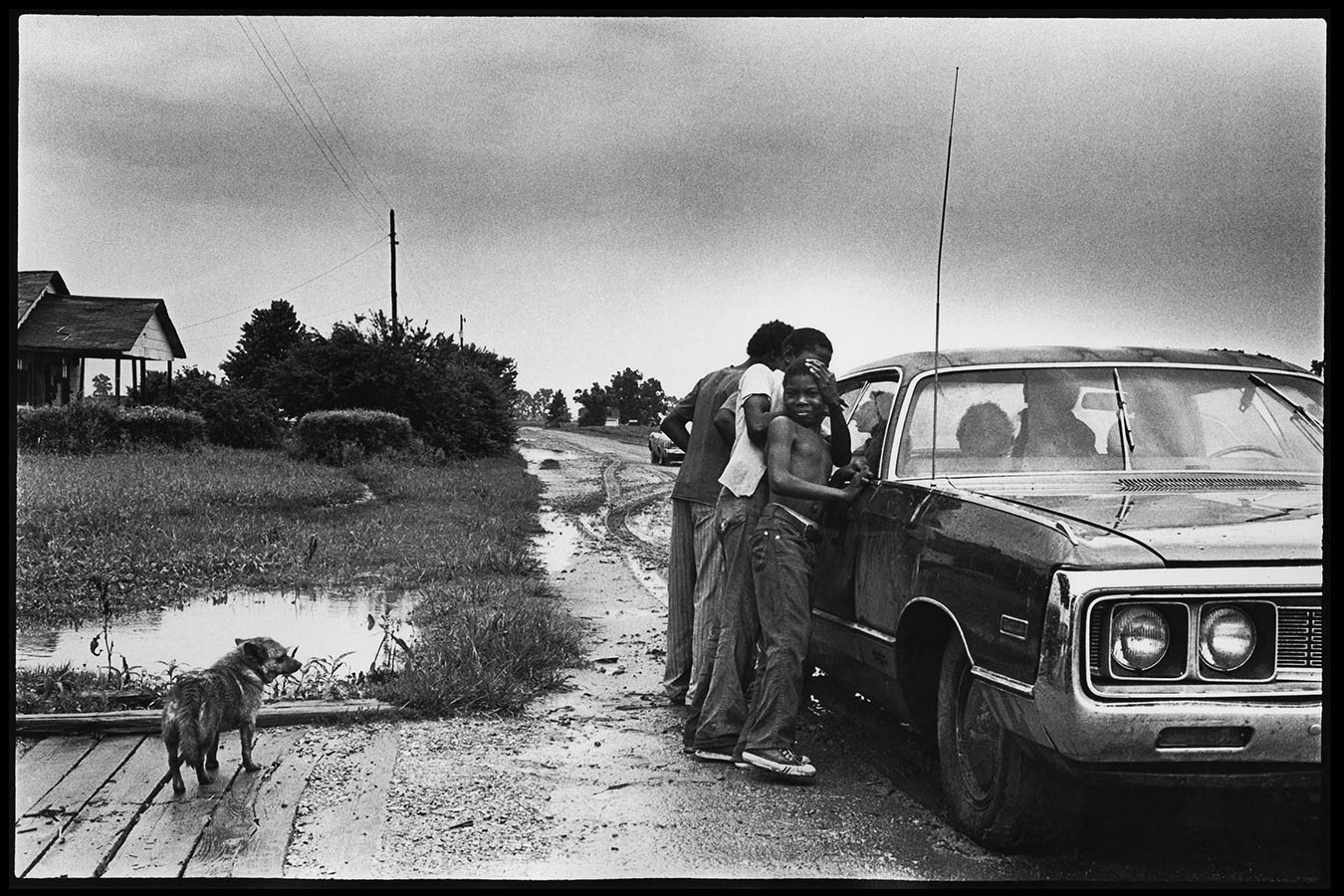In the literary world, there is a special place, and often a special love, for the autobiography or memoir. Sometimes, the reason for this is obvious. Somebody has been involved in something extraordinary—current events, politics, war, music, sports, whatever—and we’re curious what their story may be.
“Rotan Switch” by Lisa McCord
Published by Kehrer Verlag Heidelberg, 2024 >>>
Review by W. Scott Olsen
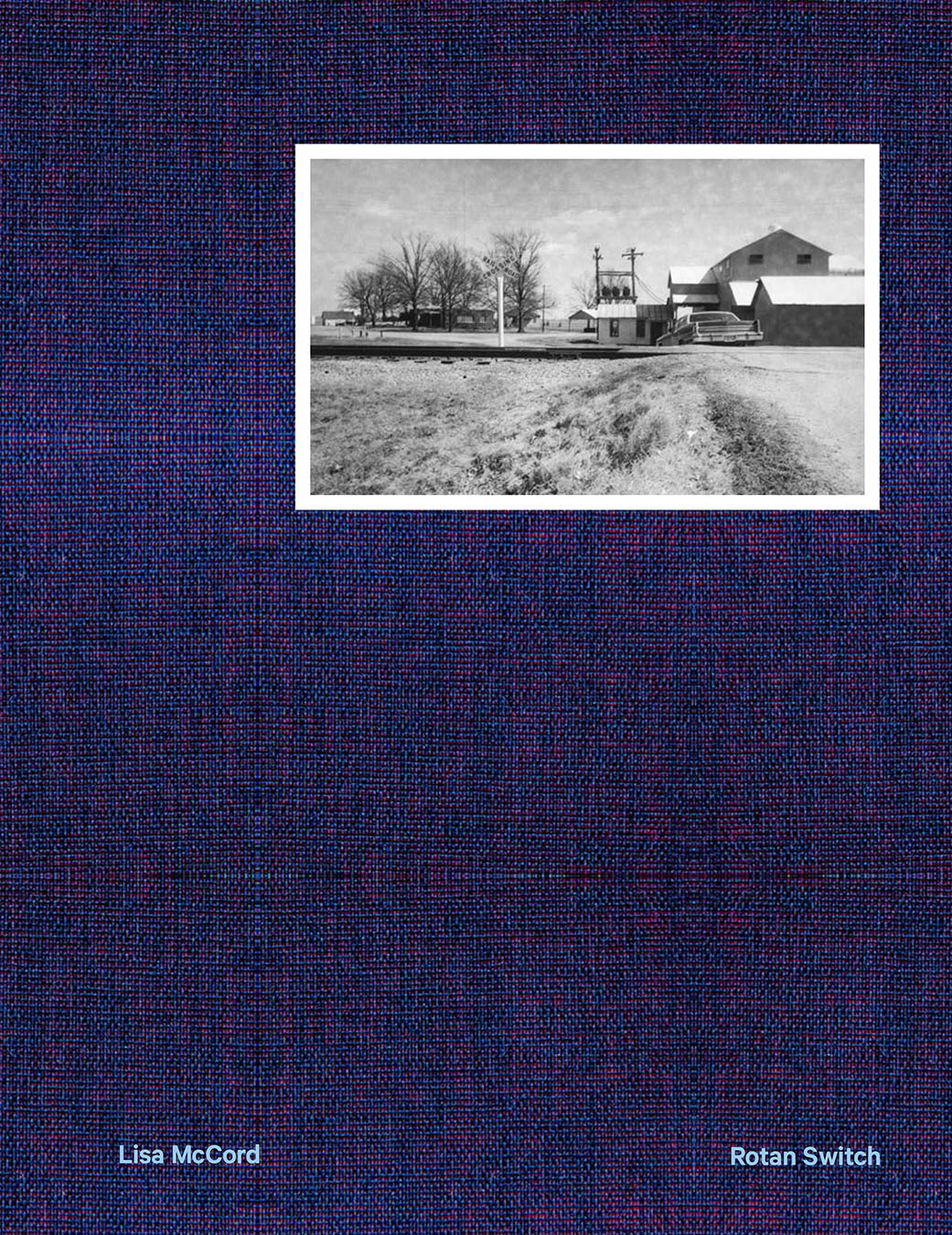
But, more often than not, the autobiography or the memoir is a more personal, deeply introspective examination of a more ordinary human life put in some illuminating circumstance. This circumstance does not need to be a spectacle. It can be decidedly, intentionally, and purposefully quiet, deeply nuanced wondering about how to give form to a milieu.
Happily, the autobiography and the memoir are not bound to only literature. It can, in fact, be argued that all art is at least at some level autobiography. Or at least auto-sensibility. And in photography we are accustomed to photographers developing a style that reflects their inner sense of aesthetics, a style that expresses their way of looking at the world.
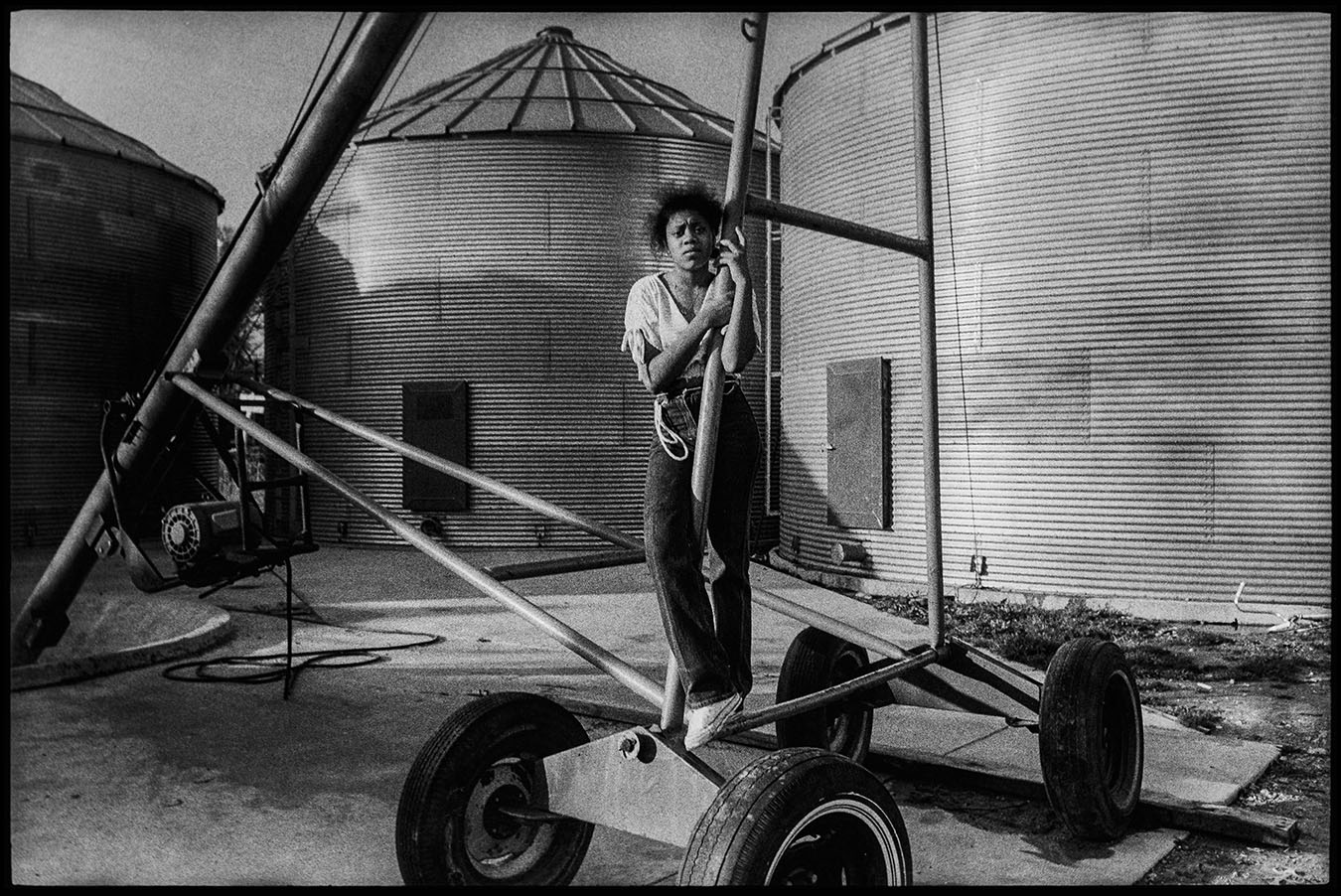
And while each image is an artifact, a personal statement, a statement is not the same thing as a memoir. A statement is not the same thing as a grand scope or a narrative arc. A statement is not a story.
For this reason, I am deeply moved and impressed by Lisa McCord’s new book, Rotan Switch.
Rotan is the name of a town in Arkansas, in Mississippi County, 50 miles north of Memphis, deep in the American south where McCord grew up. The book begins with a handful of images taken by other people, images taken around the time of her birth, to set the context and mood of the time. Quickly, though, the book moves into its main, and much larger project—a personal and social and geographic history that is so deeply wound up with McCord’s experience, the book becomes a memoir.
Unlike a great many photo books, this one asks to be read, beginning to end, the way you would read literature. While it is possible to jump in at any point and admire the emotional merit of each image, that’s not what this project is about. This book, beginning to end, is a story.

Alexa Dilworth, publishing director and senior editor at the Center for Documentary Studies at Duke University, in an introduction, explains—
The photographs and histories in “Rotan Switch” occupy a geography that is personal, imaginary and actual. The patch of land on which Lisa made these images for more than forty years, starting in 1978, is smaller than most of the small places famously photographed in the Delta and the Deep South by too many photographers to count…And this collection of photographs is distinct in that it is made by a woman in the company of other women in private spaces…
As documentary and memoir—as a record of time and place, as a family album and diary—Rotan Switch speaks to intimacy and distance, proximity and separation. This is a record complicated by its place of origin and that place’s original, singular wounds.
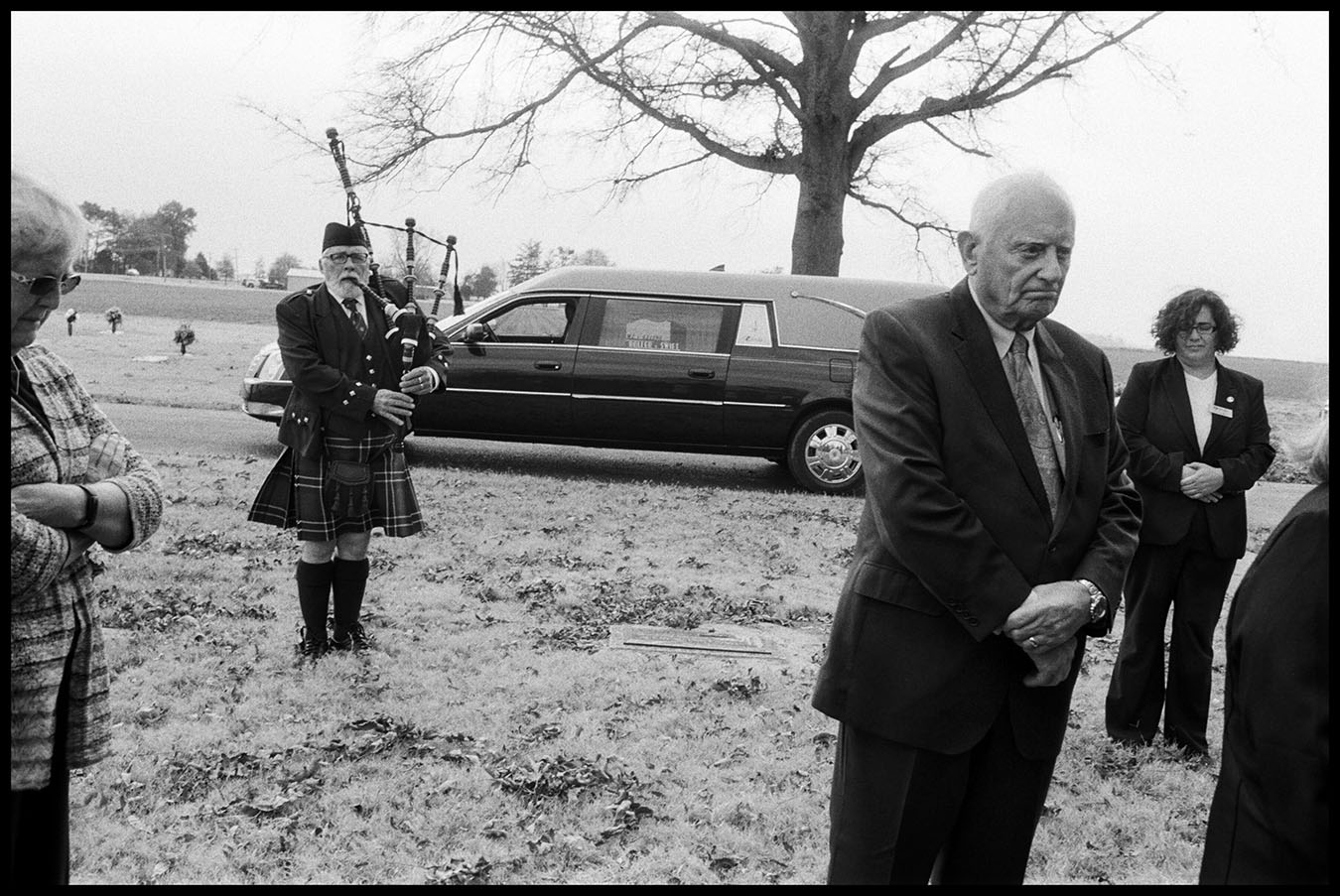
Rotan Switch is a remarkable personal exploration, complicated by race and class, enriched by the perspective that time brings to any human history.
In her own introduction, McCord writes—
These photographs are complicated; they exist in the context of the socioeconomic structures of rural South. Although the subjects are family to me, as a white photographer and the granddaughter of a landowner, my photographs of the Black community implicate my own role in reinforcing these power structures. In the community in which most people spend their time working or caring for children, my ability to observe and document in itself, has been a position of privilege.
The design of this book is eloquent. The endpapers are reminiscent of rural wallpaper. The opening pages, those containing photographs before McCord picked up her own camera, are a soft ivory color. The mood of fond memory is evoked at the very beginning. Here, and throughout the book, there are informative captions towards the bottom, and up to the top, there is the occasional bit of narrative, a little bit of context, not for who’s in the picture, but for what story is being told.
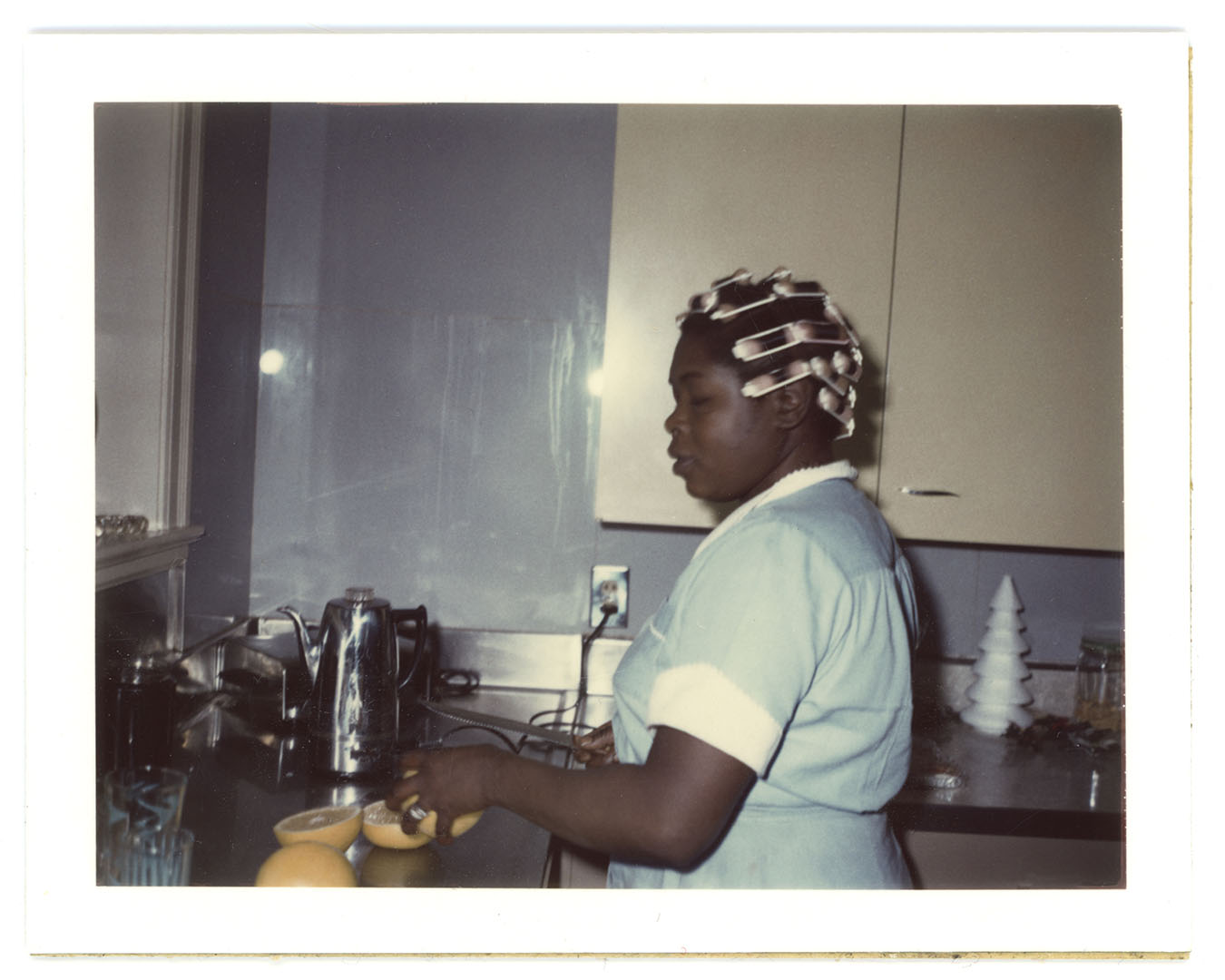
The book moves into a brighter paper stock when McCord is the photographer, and a remarkable series that can only be described as close and intimate and loving begins. This is long-form personal documentary work at its very best. The images are often grainy, sometimes blurred, and yet each of them strikes me as honest and often poignant.
Not only is this a record of what the town of Rotan was, this is a record of what it was like.
Most of the images are black and white, giving them the kind of timelessness, the kind of insight that approach so brilliantly offers. Even if the image is just a kitchen table with a can of Crisco on top, the images speak volumes.
Many of the people in these images clearly know their picture was being taken. Many don’t. However, that distinction doesn’t matter at all. Later in the book, the bits of narrative become multi-authored, other people speak their bits of explanation in text. There are births in this book as well as death. There is fun and there is pain.
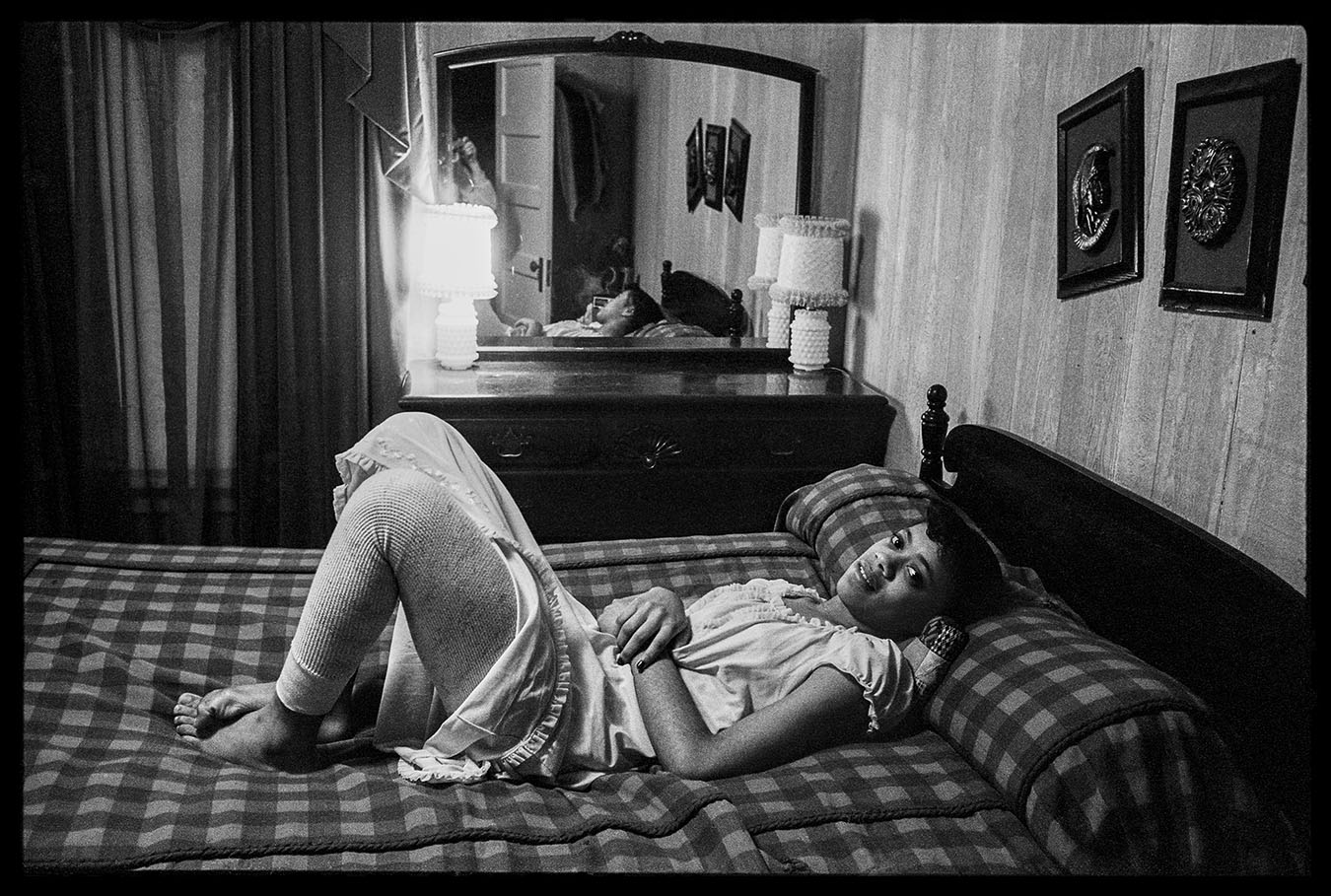
At the end of the book, in a concluding essay, Aline Smithson, artist and founder of Lenscratch, writes—
The book is a personal collection of a life lived, a scrapbook that contains the dichotomy of two worlds: the innocence of circumstance and the visual acknowledgement of colliding cultures, that include race and privilege. The artist simply documented her world and the people in it. The photographs reveal her curiosities in the landscape of her childhood.
I have read more memoirs, more autobiographies, than I can count. The real joy of each of them is not page first or page last, but page somewhere in the middle, where the author is trying to figure out how all the currents of the universe have conspired to put them in that position on that day. It is a wonderful celebration of complication, circumstance, intent and accident. It’s what makes reading profound.
I feel exactly the same way as I go through Rotan Switch. Here, through photographs, the artist is in the process of reconstructing a narrative that is not clear, and yet ever-present. Documentary photography is by definition a revelation. It reveals something. It uncovers something. It gives the voice of evidence to something. That’s the power of Rotan Switch.
This is not a book you put on the coffee table, open at some point and say, Oh, isn’t that pretty. This is a book you settle with into a chair, begin at page one, and continue.
A note from FRAMES: Please let us know if you have an upcoming or recently published photography book.

